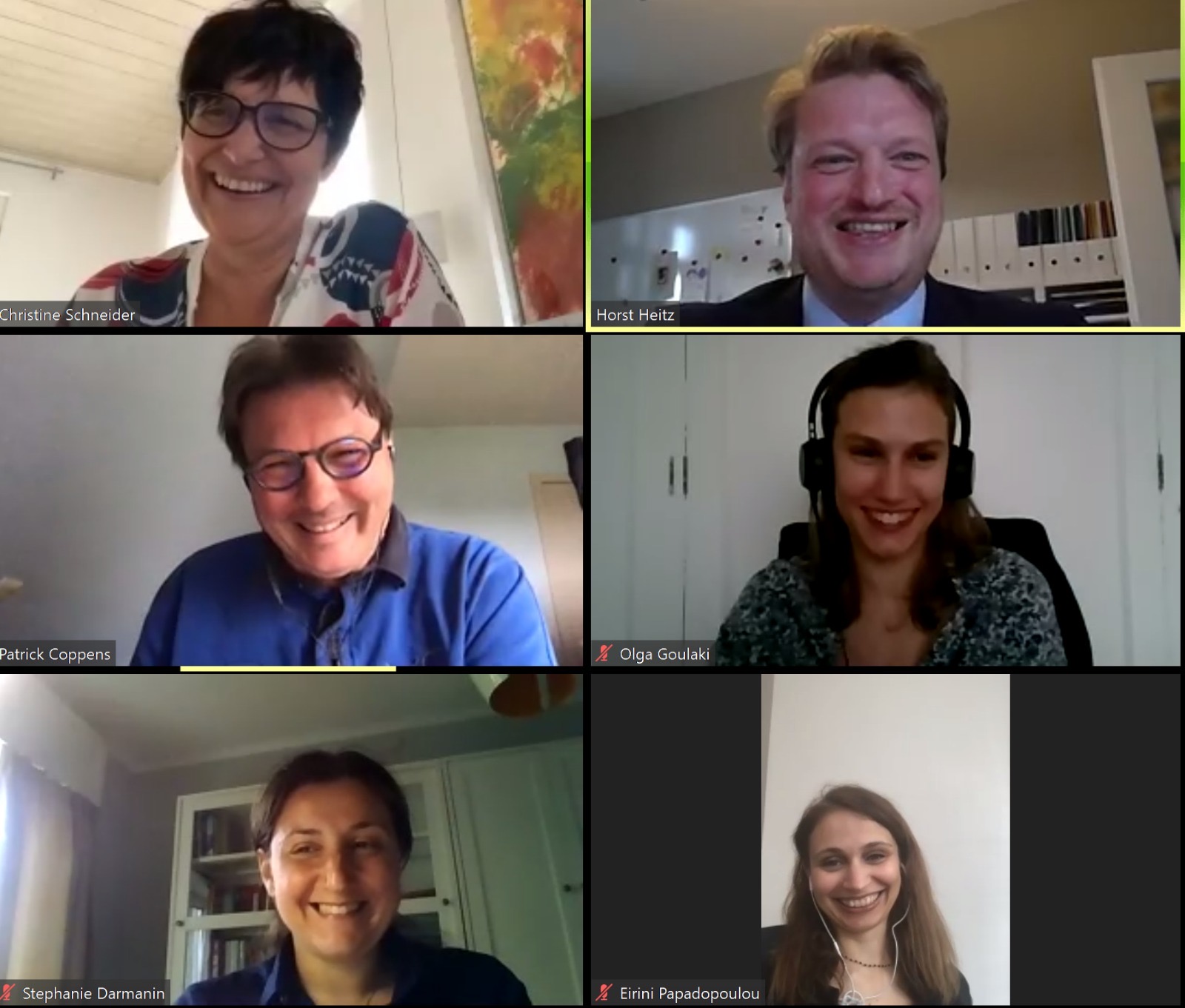Best Practices for Entrepreneurs & Industry: How to Avoid Misleading Claims & Tackle Excessive Pricing for Functional Foods

💬 On April 29th, the Working Group on Health & Nutrition 🥬 held a webinar on “Best Practices for Entrepreneurs & Industry: How to Avoid Misleading Claims & Tackle Excessive Pricing for Functional Foods” in contemplation of evaluating good practices to ensure peoples´ trust in food supplements even in times of misleading, false claims and excessive pricing.
Since the #Covid19 #outbreak, sales of functional foods have increased as consumers stocking up vitamins, herbs as well as cold and flu remedies. Dietary supplements do not #cure diseases, but they can #help avoiding deficiency #symptoms, support healing processes and help meeting the dietary needs, thus lower the burden on #healthcare systems. It is particularly relevant for #elderly #people, people with #chronical diseases or #patients during healing processes that are restricted against the spread of Covid-19, which may result in reduced extensive care and decreased nutritional status. In this case, functional foods, like dietary #supplements, can help to maintain a balanced supply of all nutrients (at least temporarily).
This is where providers step into the breach and suggest and #advertise #prevention through food supplements. In fact, health-related advertising claims are not explicitly permitted nor banned in the #EU, but all #misleading #statements are prohibited. This means, it is forbidden to attribute effects or properties to a food that it does not have. In these challenging times, #consumer #protection is paramount.
This 🎦 webinar with Christine Schneider MEP, Committee on the Environment, Public Health & Food Safety and Chair of the SME Connect Working Group on Health & Nutrition, Patrick Coppens, Director of Scientific and Regulatory Affairs at Food Supplements Europe, Eirini Papadopoulou, Director of EU Regulatory Affairs of the European Direct Selling Association (SELDIA), Stephanie Darmanin, Policy Officer, Enforcement of Consumer Law & Cross-Border Cooperation, DG JUST and Olga Goulaki, Policy Officer, Food information and composition food waste Unit, DG SANTE, sheds light on the current situation, how the consumer can be informed and how food supplements and functional food can make a meaningful contribution towards #healthy #nutrition in the current situation.
Christine Schneider MEP opened the event by highlighting that inaccurate practices of some entrepreneurs and industrial companies, especially the use of false or misleading claims are spreading faster than the novel corona virus. However, not only entrepreneurs and companies have to ensure good practices, but also the consumers. The overdose of food supplements can have negative impacts on a costumer´s health.
Trust and credibility are key for the food supplement sector. Patrick Coppens emphasised the importance of a good reputation of functional food and food supplements. Consumers can be sure that the products purchased in Europe are safe and scientifically proofed as the safety of those products is part of the legislation on European and national level. He also explained advantages and positive effects of food supplements for example on the healthcare system. However, some manufacturers and retailers use false claims to gain financial advantages. Especially on social media misleading and false information are circulating.
Eirini Papadopoulou accentuated examples for good practices and explained what SELDIA, the European Direct Selling Association has been done to ensure right advertising and avoiding excessive pricing. SELDIA attaches importance to the accuracy and the ease of understanding of the information placed on their products as consumer protection is paramount.
A remark speech was hold by Stephanie Darmanin. She underlined the actions already implemented by the European Commission to ensure consumer protection by avoiding misleading claims and set the legal framework of using accurate claims. The European commission works closely together with national authorities to identify misleading and false claims what contributes to the legal framework.
Olga Goulaki, highlighted the regulation on general food law in association with misleading practices of entrepreneurs, manufactures and retailers etc. The food sector should ensure food is satisfied regarding laws dealing with food matters. DG SANTE has published a coordinated action plan on online offers and advertising of foods related to COVID-19 so, that the protection of consumers is guaranteed in times of uncertainty resulted by the corona virus. Additionally, she underlined the evaluation of health claims on a case to case base. A good image and reputation of food supplements must be safeguarded. The common goal of industry and governmental authorities is to keep the trust of European citizens high.